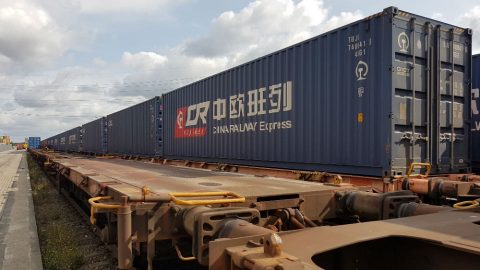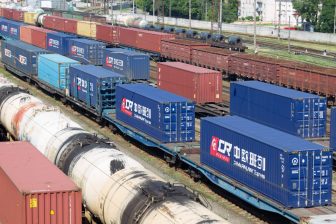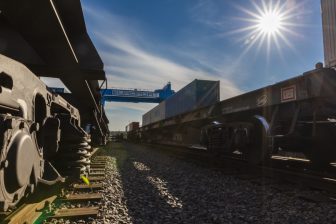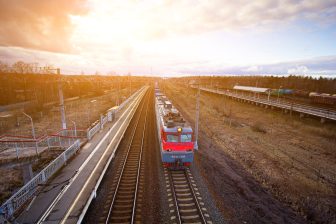
Only fully loaded trains to depart from China
Only fully loaded trains may depart from China to the west. This is the latest restriction on Eurasian rail freight traffic, implemented by the Chinese government last month. A train with 40 full containers and one empty will not be subsidised.
The new rules were confirmed by several parties involved with rail freight on the New Silk Road. They came into force in 2017, but were not actually implemented back then. Until two months ago, trains with empty containers still departed the Asian country. But since September the rule is in place and practiced: only trains with 41 containers may be operated.
Delays and cancellations
“A possible side effect of this rule is that it leads to less departures and delays, but I do not believe this will happen”, commented Erik Groot-Wassink of Nunner, a logistics provider in the Netherlands. For the regular, popular lines the effect will hardly be there. However, this may be different for new connections, which are not fully up and running.
“I believe this will be a challenge for the new lines on the New Silk Road. These may not be able to become operative until they have a full train”, said Rob Brekelmans, CEO of New Silk Way Logistics, another provider in the Netherlands. He added that recently the rule caused severe delay on a route where the required 41 containers were not available. “We booked a container on a train from Xian, but the train did not depart, waiting for more cargo. Eventually, it waited for weeks, causing considerable delay in the delivery.”
Increase efficiency
Although it is common for a railway service to await sufficient demand before becoming fully operative, eastbound services from China have up till now been subsidised and hence, were sometimes operated regardless of the demand. The operator carried the financial risk.
The Chinese government now wants to increase the efficiency of the China-Europe railway lines. The costs of running a train to Europe runs into several hundreds of thousands. In general, 20-60 per cent of the operation costs are subsidised. These subsidies are to be phased out in the near future.





